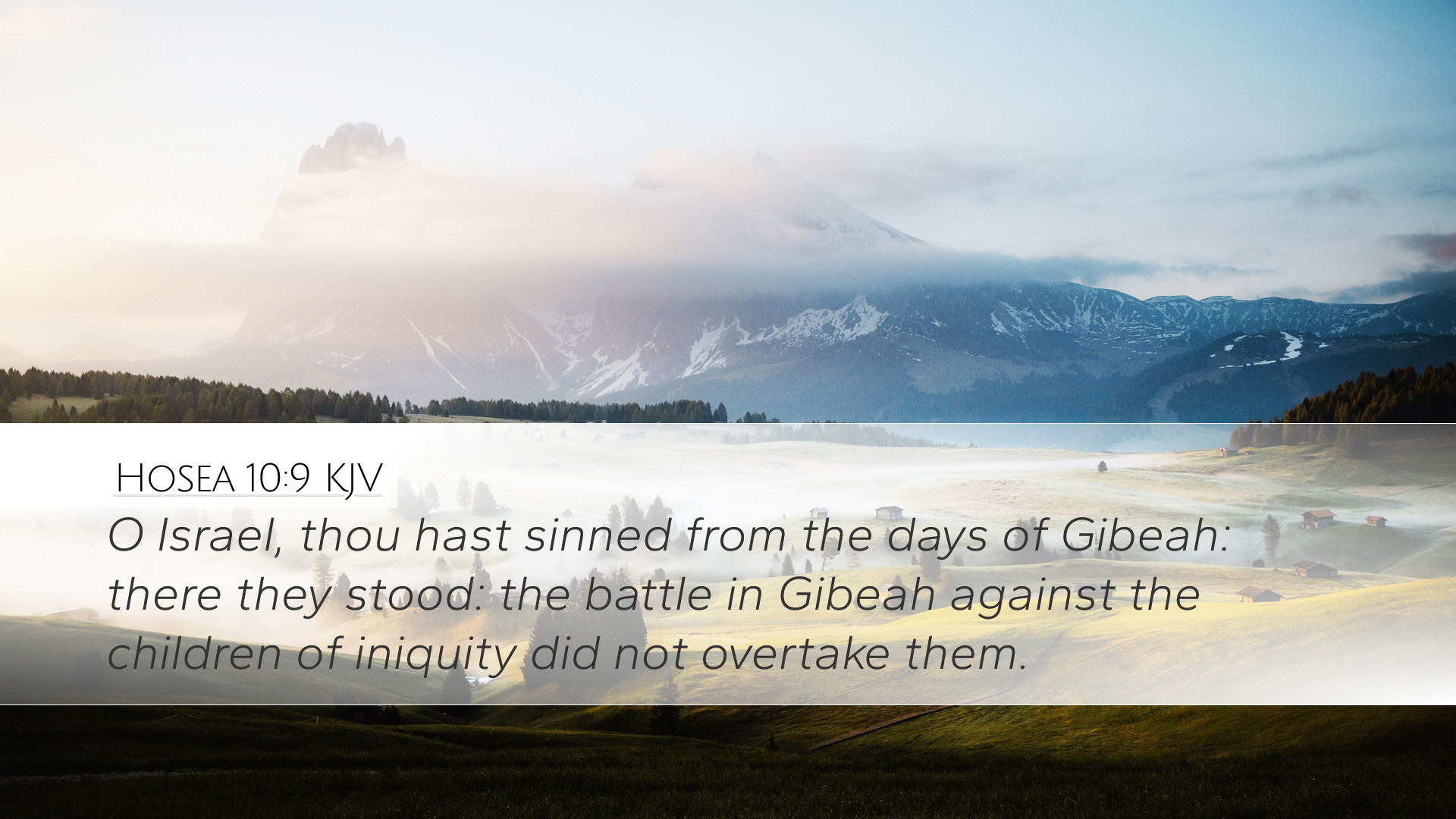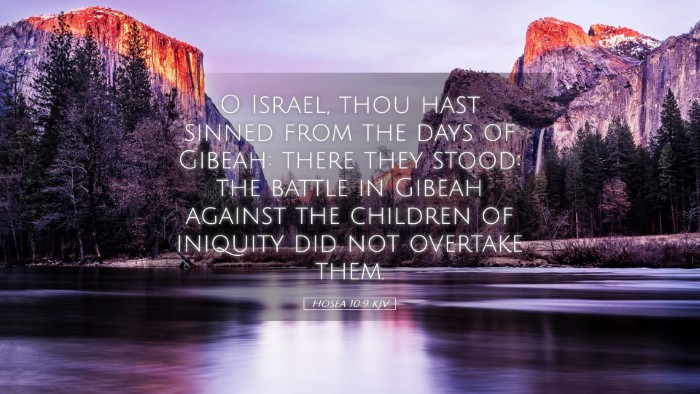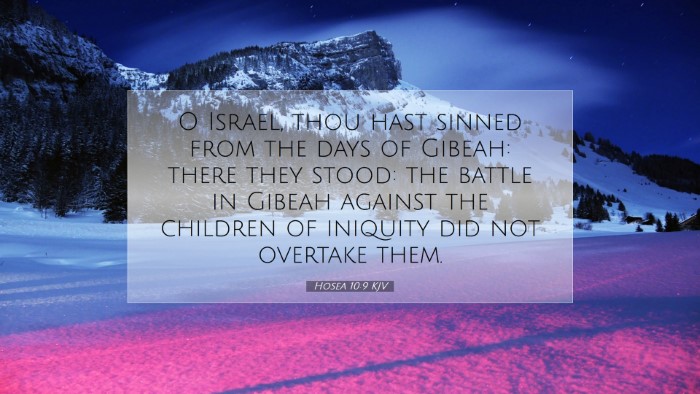Old Testament
Genesis Exodus Leviticus Numbers Deuteronomy Joshua Judges Ruth 1 Samuel 2 Samuel 1 Kings 2 Kings 1 Chronicles 2 Chronicles Ezra Nehemiah Esther Job Psalms Proverbs Ecclesiastes Song of Solomon Isaiah Jeremiah Lamentations Ezekiel Daniel Hosea Joel Amos Obadiah Jonah Micah Nahum Habakkuk Zephaniah Haggai Zechariah MalachiHosea 10:9
Hosea 10:9 KJV
O Israel, thou hast sinned from the days of Gibeah: there they stood: the battle in Gibeah against the children of iniquity did not overtake them.
Hosea 10:9 Bible Commentary
Commentary on Hosea 10:9
Verse: "O Israel, thou hast sinned from the days of Gibeah: there they stood; the battle in Gibeah against the children of iniquity did not overtake them."
Introduction
This verse, situated within the larger narrative of Hosea’s prophetic ministry, addresses the persistent sin of Israel, linking their current spiritual condition to the historical events that unfolded at Gibeah. Commentators such as Matthew Henry, Albert Barnes, and Adam Clarke provide profound insights into the implications of this verse for understanding the nature of sin and its repercussions for the people of God.
Historical Context
Gibeah's Significance: The reference to Gibeah points back to the events recorded in Judges 19-20, where a horrific crime led to civil strife in Israel. This historical backdrop serves as a warning, highlighting Israel's recurrent tendency towards moral decay and civil conflict.
Theological Implications
- Rebellion Against God: Henry notes that Israel's sin is not only against one another but fundamentally against God. This rebellion is rooted in a failure to uphold righteous standards, showcasing the gravity of moral compromise.
- The Consequences of Sin: Barnes emphasizes that Israel's transgressions have chronicled a history of iniquity. The phrase "they stood" indicates Israel’s persistent defiance, which leads to inevitable judgment.
- God's Patience and Warning: Clarke articulates that God, though patient, warns Israel by recalling their historical failures. The circumstances of Gibeah are a somber reminder of God's justice against unrepentant sin.
Lessons for Today
Pastors and theologians can draw several critical lessons from Hosea 10:9:
- Historical Awareness: Understanding the history of sin in scripture can serve as a cautionary tale for contemporary believers. Reflecting on past transgressions fosters a deeper appreciation for God’s grace.
- Call to Repentance: Just as Israel was called to repent, modern congregations are similarly urged to confront their sins. The church must not shy away from addressing issues of iniquity within its community.
- God's Justice: The text illustrates that God's justice is inescapable. While He is merciful, there are consequences for persistent sin that must be acknowledged.
Conclusion
Hosea 10:9 serves as a poignant reminder of Israel's cyclical sin and the repercussions that follow divine laws. Both ancient and modern readers are called to reflect on their actions in light of God's righteous standards. The insights from Henry, Barnes, and Clarke collectively urge a serious contemplation of sin, justice, and the character of God, prompting a response of confession and a recommitment to holiness.


